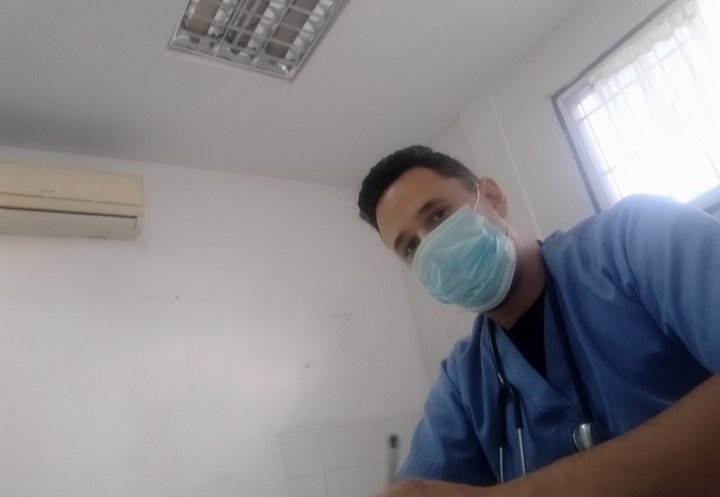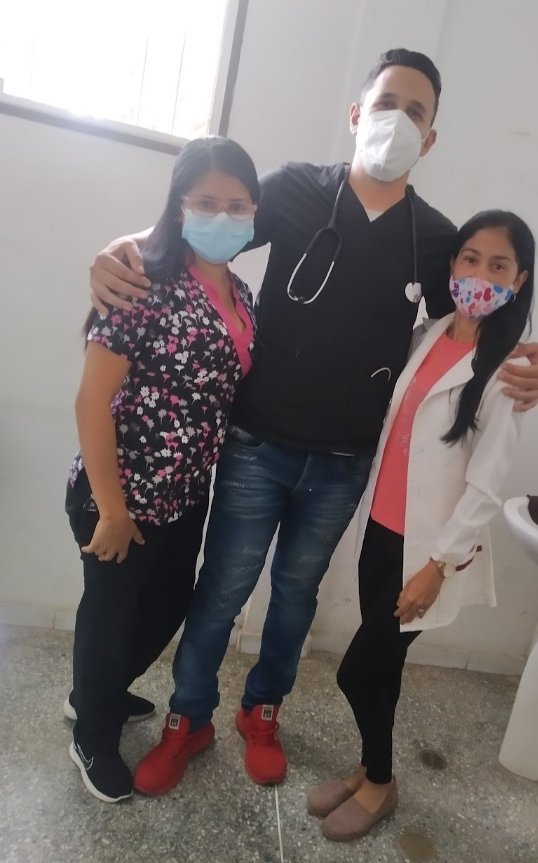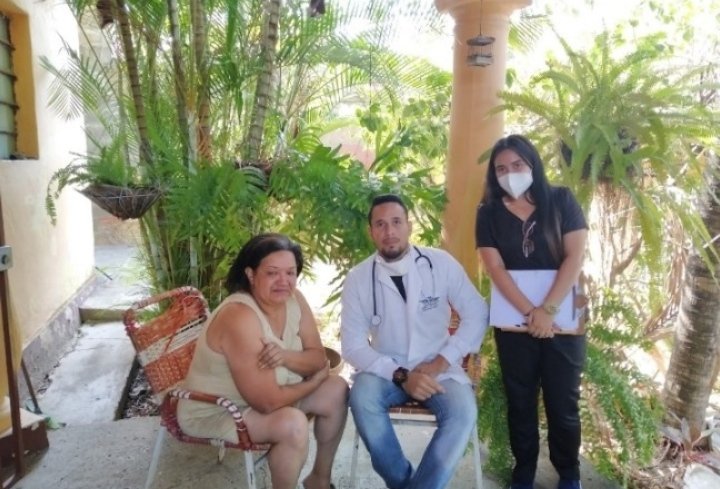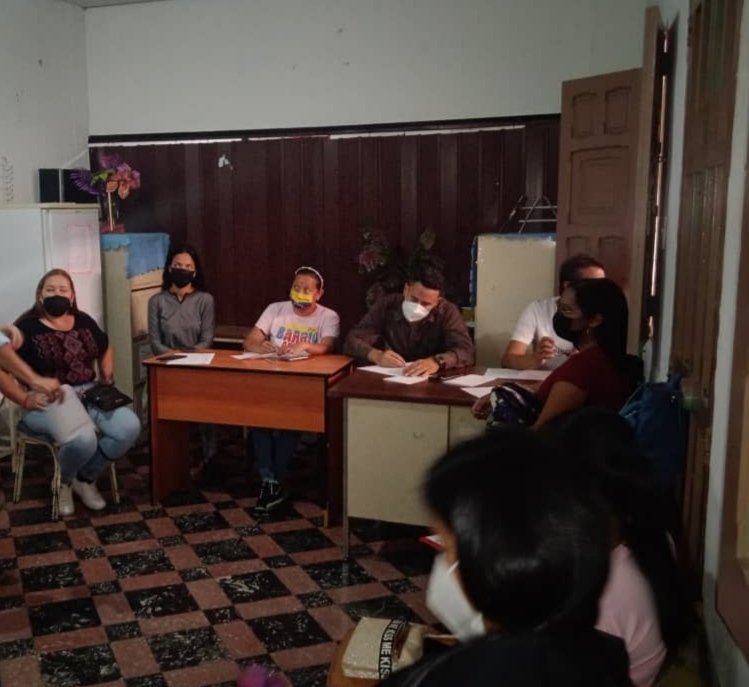Hola amigos de Hive, un placer saludarlos nuevamente, esperando como siempre que dispongan de buena salud y mucha energía positiva, con eso tenemos todo lo que se requiere para que todo lo que nos propongamos nos salga bien.
La vida es una experiencia única, donde vivimos un sin fin de emociones, lloramos y reímos, sentimos felicidad y tristeza, amamos y odiamos, todo esto forma parte de esta experiencia maravillosa que llamamos vivir.
Actualmente, vivimos en un mundo cada vez más globalizado, dónde la tecnología nos permite informarnos de todo lo que sucede al rededor de nuestro planeta, y a su vez, es esa misma tecnología la que nos limita y nos hace ser cada día más dependiente de ella.

Sin embargo, hoy quiero hablar de la cantidad de violaciones que se han venido siendo noticias en las últimas semanas, sobretodo, en Latinoamérica dónde parece que el número de agresiones sexuales está en constante crecimiento.
Se considera, violación: a todo acto tanto físico, psicológico,o emocional,que conlleve a una relación sexual forzosa, por medio de la penetración con objetos u órganos sexuales ya sea de forma oral, vaginal o anal.
Cabe destacar, que las violaciones afectan tanto a mujeres, como a hombres y niños, generando en la víctima daños, tanto físicos como psicológicos,repercutiendo de manera negativa en su modo y estilo de vida, muchas veces de forma irreversible.

Este problema no es nuevo, durante siglos ha dido un problema social, así como de salud pública, por lo tanto no se puede ser indiferente ante este tipo de situaciones.
Y, ¿Cómo debe actuar un médico ante una violación?
1-Generar empatía con la víctima:
Escuchar a la persona y ponerse en su lugar, no presionarla, prestar mucha atención a lo que dice, a sus reacciones y su actitud, creando un ambiente de confianza y seguridad.
2-Tener presente que se está en una situación de "Post Trauma": Por lo tanto la persona necesita no sentirse juzgado, ni señalado, todo lo contrario hay que tratar de hacer entender que la situación vivida no es su culpa, y que tiene en el médico un apoyo.

3-Alertar a las autoridades competentes: Está opción no es negociable, las violaciones deben ser notificadas oportunamente a los entes correspondientes.
Muchas veces la víctima no quiere realizar la denuncia, nuestro papel es persuadirlo de manera pasiva pero firme, y explicar la importancia de esta notificación, para que de esta forma no siga pasando este tipo de situaciones. No denunciar nos hace cómplices.
4-Realizar la evaluación clínica correspondiente: Buscar a través del examen físico posibles traumatismos, fracturas o hemorragias que puedan poner en riesgo la vida del paciente.
5-Realizar la referencia escrita con los hallazgos encontrados al examen físico al medico forense.
6-Administrar medicamentos para prevenir posibles Infecciones de transmisión sexual, en Venezuela se utiliza el siguiente protocolo:
Ceftriaxona 250mg intramuscular + Azitromicina 1gm vía oral dosis única, metronidazol 2gm dosis única.
Retrovirales (para prevenir VIH): Terapia triple (Tenofovir+emtricitabina) dosis única +Ramteglavit por 15 días.
Vacuna de la hepatitis B en caso de no estar vacunado. Con refuerzo a los 2 meses.
Anticonceptivo de emergencia para evitar un embarazo, y al no contar con dispositivo Intrauterino: Lenovogestrel, que es la píldora del día siguiente.
6-Pruebas de laboratorio: HIV, Hematología completa, VDRL, sífilis. Dichos exámenes deben repetirlo al primer mes, al tercer mes, a sexto mes, y al primer año de haber sucedido el acto.
7-Por último es recomendable que se trate al paciente con un equipo multidisciplinario durante los primeros 2 años que incluya, psicólogo, psiquiatra, y mediyco familiar.

Hace tan solo unos días, me reuni con un equipo compuesto por diferentes profesionales, y voluntarios, dónde se aporto diferentes ideas para buscar solución a este grave problema, y es que no podemos quedarnos de brazos cruzados, las orientaciones, la educación sexual, y la detección de casos de violencia temprana, son aportes necesarios para intentar erradicar este tipo de comportamiento.
El llamado es a estar atentos ante cualquier situación, estar vigilantes y realizar las denuncias oportunas, solo así podremos tener una sociedad mejor.
Gracias.
Dios siempre de Cabrestero.
PD: Fotos de mi propiedad.
English:
Hello friends of Hive, a pleasure to greet you again, hoping as always that you have good health and lots of positive energy, with that we have all that is required for everything we propose to do well.
Life is a unique experience, where we live an endless number of emotions, we cry and laugh, we feel happiness and sadness, we love and hate, all this is part of this wonderful experience that we call living.
Nowadays, we live in an increasingly globalized world, where technology allows us to be informed of everything that happens around the world, and at the same time it is that same technology that limits us and makes us more dependent on it every day.
However, today I want to talk about the number of rapes that have been in the news in recent weeks, especially in Latin America where it seems that the number of sexual assaults is constantly growing.
Rape is considered to be any physical, psychological or emotional act that leads to a forced sexual intercourse, through the penetration of objects or sexual organs either orally, vaginally or anally.
It should be noted that rape affects women, men and children, causing physical and psychological damage to the victim, with negative repercussions on their way of life, often irreversibly.
This problem is not new, for centuries it has been a social problem, as well as a public health problem, therefore one cannot be indifferent to this type of situation.
And how should a physician act in the event of rape?
1-Generate empathy with the victim: e
Listen to the person and put yourself in her place, do not put pressure on her, know how to listen and pay close attention to what she says, her reactions and her attitude, creating an atmosphere of trust and security.
2-Bear in mind that you are in a "Post Trauma" situation:
Therefore the person needs not to feel judged, nor singled out, on the contrary, you must try to make them understand that the situation is not their fault, and that they have the support of the doctor.
3-Alert the competent authorities: >This option is not negotiable, the violations must be notified in a timely manner to the corresponding entities.
Often the victim does not want to make the complaint, our role is to persuade him passively but firmly, and explain the importance of this notification, so that in this way this type of situation does not continue to happen. Not reporting makes us accomplices.
4-Realize the corresponding clinical evaluation:
Search through the physical examination for possible trauma, fractures or bleeding that could put the patient's life at risk.
5-Refer the findings of the physical examination to the forensic physician.
6-Administer medications to prevent possible sexually transmitted infections, in Venezuela the following protocol is used:
Ceftriaxone 250mg intramuscular + Azithromycin 1gm oral single dose, metronidazole 2gm single dose.
Retrovirals (to prevent HIV): Triple therapy (Tenofovir+emtricitabine) single dose + Ramteglavit for 15 days.
Hepatitis B vaccine if not vaccinated. With booster at 2 months.
Emergency contraception to avoid pregnancy, and not having an intrauterine device: Lenovogestrel, which is the morning after pill.
6-Laboratory tests: HIV, complete hematology, VDRL, syphilis. These tests should be repeated in the first month, third month, sixth month, and first year after the act.
7-Finally, it is recommended that the patient be treated by a multidisciplinary team during the first 2 years, including psychologist, psychiatrist, and Mexico family.
Just a few days ago I met with a team composed of different professionals and volunteers, where different ideas were contributed to find a solution to this serious problem, and we can not stand idly by, counseling, sex education, and the detection of cases of early violence, are necessary contributions to try to eradicate this type of behavior.
The call is to be attentive to any situation, be vigilant and make timely complaints, only then we can have a better society.
Estos días hablaba esto con mi mamá, aunque sabemos que las violaciones no es algo que ocurre de ayer para acá, he visto como ha sido como ha incrementado, pareciera un challenge que tiene estas personas para ver quien hace el peor acto de violación, ahora bien, es importante saber que después de que una victima confiesa o es rescatada, hay una luz que se enciende después de una atención correcta y es asistida para superar este trauma o al menos tratar de dejar este capítulo atrás. Una parte que dificulta al agredido es que es señalado por la sociedad cuando se hace público su caso, pues se expone a leer muchos puntos de vista donde muchos señalan a la victima como culpable, afectando de forma negativa su proceso de superación!. Por ello muchos se reprimen y se encierran dentro de sí mismos. Lo importante es que sea largo o corto puedan retomar sus vidas dejando todo atrás!
Me encantó leer tu post, gracias por compartirlo. Saludos y Bendiciones!!!
Su post ha sido valorado por @ramonycajal